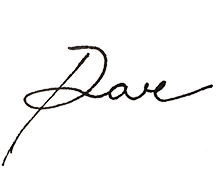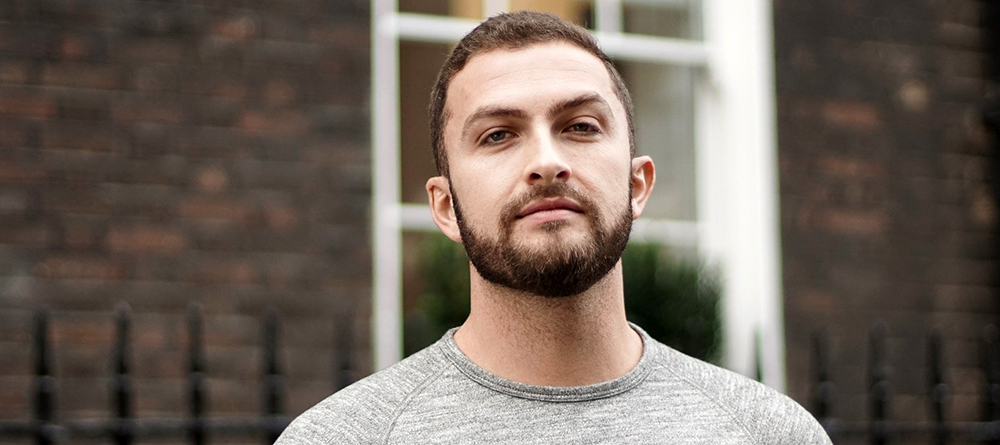Avoidance is defined as “the action of keeping away from or not doing something.” On the surface, the definition of “avoidance” means any act of resisting or not-doing something. But that doesn’t mean that all acts of avoidance are equal. For example, human beings instinctively avoid dangerous situations, which is a good thing, whereas avoiding eating food that we don’t enjoy is completely innocent. So what defines avoidance as a negative or unwanted behavior? In this article, I’ll explain how.
Not long ago, I wrote to you about a letter that I had been avoiding for years.
The message of that story was to say that, despite my being a “teacher” of avoidance, I deal with avoiding uncomfortable situations just as much as anyone else.
Truly, there is nothing more common, routine, and human than avoiding discomfort, uncertainty, or the potential of “bad news.”
While that may not exactly sound like the most uplifting or ringing of endorsements for the human condition — “We’re all destined to avoid everything that’s unpleasant and there’s nothing that we can do about that. Have a terrific day!” — the very reason that I teach avoidance as a concept is that it is a particularly powerful gateway into changing not only our lives for the better but our world for the better, too.
And yet, what it means to “learn from what we’ve been avoiding the most” is not as simple as coming up with a long list of things we can say that we’ve been avoiding.
Because if we all sat back and thought about it, we could each come up with a long, long list of things that we could say that we’ve been avoiding.
Like a doctor’s visit. Or green peas. And tarantulas.
Also, skydiving accidents.
(And maybe gluten.)
And definitely that person at the coffee shop who seems just a little too eager to tell you his whole life story after you make accidental eye contact and politely smile…
It would be far too easy — and, perhaps, irresponsibly misleading — to tell you that “learning from what we’re avoiding” is a journey of facing everything that we’ve ever been avoiding, post haste.
As humans, we don’t just avoid things that we could stand to learn about or benefit from — we also naturally avoid unpleasant experiences, and unsafe situations, and uncomfortable encounters. We avoid based on matters of personal taste and individual preference, too.
In other words?
Just because you’re not-doing, not-facing, or not-confronting something doesn’t necessarily mean that you’re “avoiding” it.
Not everything that we avoid means there’s something inherently soul-expanding to learn from “unavoiding” it.
(Especially green peas. Bleh.)
So, if you’ve been contemplating what you have been avoiding lately — and wondering, as I did with the letter I had been avoiding, if it may be time to face what is making you feel held back — there are a few questions that I want to offer that may help.
The following four questions are the ones I ask myself when I consider if I’m avoiding something in the ways that feel like they hold me back from what I desire or from what feels like personal growth.
Take a read below.
And, tell me if these questions help you sort through your own relationship to avoidance by emailing me!
1. “Am I aware that I am avoiding this?”
This one may sound obvious, but when we talk about “avoiding something” we can only really avoid something that we know we’re avoiding.
What this means in real terms is this:
Facing what you’re avoiding is a personal matter that belongs to you.
You can’t be forced, taught, or instructed to face something you’re avoiding if you don’t agree that you’re actually “avoiding it”.
Here’s an example: One of my Writer’s Group of Two clients, whom I’ll call Violet, signed up for our coaching together in January because she was aware that she was actively avoiding her desire to write her first book. To face that avoidance, she enlisted my support and guidance as her peer and creative partner.
Here’s a non-starter: If I bumped into you on the street and said, “Hey you look like you’re avoiding your writing. You should stop doing that. Want to buy my e-course?” Your response would be, “Uh, I’m avoiding my what?”
You can’t be taught or told or instructed or convinced to unavoid something unless you fundamentally know and are aware of the fact that you are avoiding it. Avoidance is a private, personal matter; a matter for your own self-awareness.
This leads us to the next question…
2. “Am I at choice in avoiding this?”
Hand-in-hand with being aware of what you’re avoiding is recognizing that avoidance is a matter of choice — even if the choice you’re making feels like an un-choice, an anti-choice, a choice to continually avoid that which you are avoiding.
In the example above, my client Violet not only was aware that she was avoiding writing her first book; she also recognized that avoiding writing her first book was, in essence, making a choice in the direction of her first book.
Sure, it was a backward choice.
Avoiding something you care about kind of feels like you’re making a roundabout, indirect, inside-out, “un-choice” in the direction of something you want, but can’t seem to get fully into choosing.
But even a backward choice is still a choice.
Violet’s avoidance was actually illuminating a deep desire to write that book. The avoidance she felt was like a pile of emotional discomfort that was stacking up to cover her desire; her good intention; something she genuinely wanted. The pile of junk actually indicated where the treasure was buried.
Here’s a non-starter, though: let’s say that you are still in the process of healing from a tough heartbreak and you’re patently not on any dating apps; the idea of being set up on a blind date next weekend sends you into a blind rage. Does that mean you are avoiding relationships or dating or partnership or love?
No! Not even.
Remember, not-doing something does not mean that you’re avoiding it.
In this case, your choice is a positive one: in the direction of healing, space, processing time, and so on.
So long as your choice is true and integrated and honest, you can choose to not do something or not face something… especially in matters of healing, requiring time, or desiring space.
If you can’t honestly say that you at choice in the avoiding of something, it’s probably not a matter that you “must face” or “unavoid” right now and for your soul-growth.
3. “Do I feel the discomfort of my avoidance often? All the time? Constantly? Right now?”
Are you constantly under pressure because you are avoiding something?
Do you feel like it’s actually becoming more work to continue to avoid it than to face it?
If you’re feeling ongoing stress or anxiety or emotional discomfort from avoiding something — that you’re aware of, and choosing — it is likely taking a toll on your mental health, emotional wellness, personal energy, physical well-being, and beyond.
Although avoidance often operates in the background of our psyches most of the time (subconsciously or unconsciously), even passively avoiding something like a difficult conversation that we know we need to have — or a decision we know we need to make — acts as a drain on our energy, attention, and well-being.
Avoidance consumes space in our minds and has this sneaky method of eating away at peace and presence, since some part of our subconscious minds is still aware of what we’re avoiding, and continuing to choose and maintain that avoidance.
It takes work to avoid something for a long time.
Is it worth it?
Does maintaining the avoidance feel like more work than facing it?
If you feel like what you’re avoiding is starting to require too much of you, it may be that facing it actually could actually be a path of least resistance.
4.“Does avoiding this feel like it is holding me back?”
From healing? From growth? From expansion? From wholeness? From feeling unapologetically you?
From being fully embodied?
From becoming more fully expressed?
This fourth and final question is the kicker, friend.
When we acknowledge that what we are avoiding — aware of, choosing, and feeling all the time — feels like it’s also holding us back from truth, wholeness, healing, wellness, or being our best selves, I believe it has to be confronted.
So long as you feel ready to face it.
So long as you acknowledge that you are ready to embrace it as your learning curriculum.
Because you can say honestly that it feels like it is what your soul wants you to learn. Because it may be the key to the door of expansion, and healing, and becoming more of your whole and true self that you deserve to be.
It can be tempting to think that not-doing, not-facing, or not-pursuing something means that you’re necessarily “avoiding” it. But that’s not necessarily the case.
There are some experiences we just don’t want to have.
Some goals are excellent pursuits for others, but not for ourselves.
Some paths of learning and growth that will feel extraordinarily challenging or completely life-affirming to someone you know, but feel like a relative breeze for us.
Avoidance, as I understand it, is a way to explore the ways in which we feel we may be held back, regressed, stuck, anxious, stressed, restricted, or altogether unexpressed as souls.
If asking yourself these four questions leads you to the place where you can say, “Yes, I can safely conclude now that I am avoiding something that has been making me feel stuck or held back,” it may be time to unavoid it.
What I know is this.
Despite avoiding discomfort being hard-wired into our nature as humans, we can think of “what we’re avoiding” as the gateway to healing, learning from, and overcoming what makes us feel held back.
That is precisely why I believe avoidance exists: to help us learn how to expand into living fuller expressions as limitless souls.
Ever yours in unavoiding,

